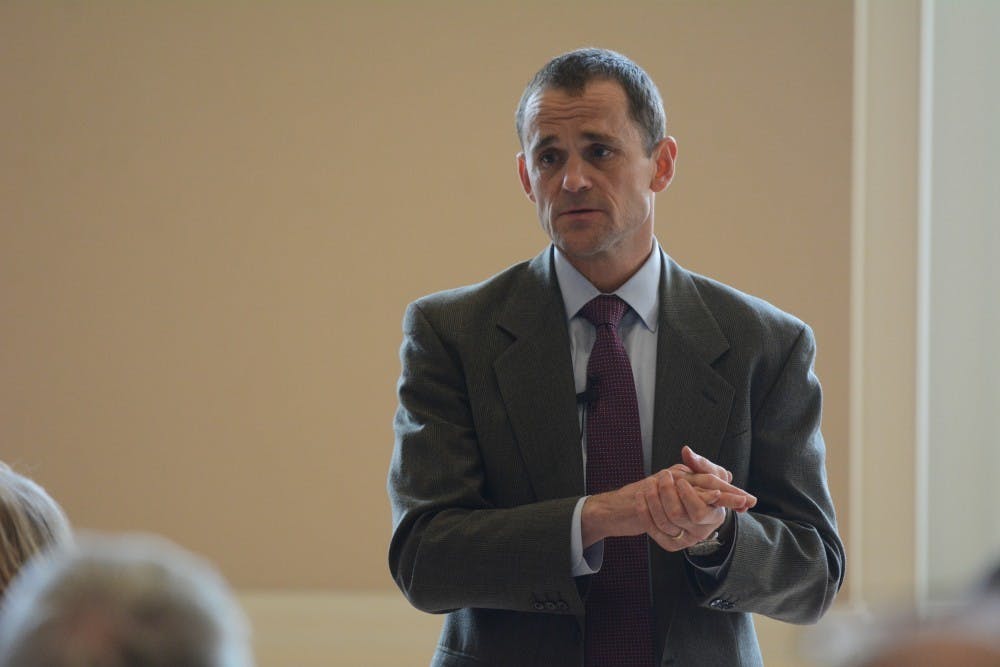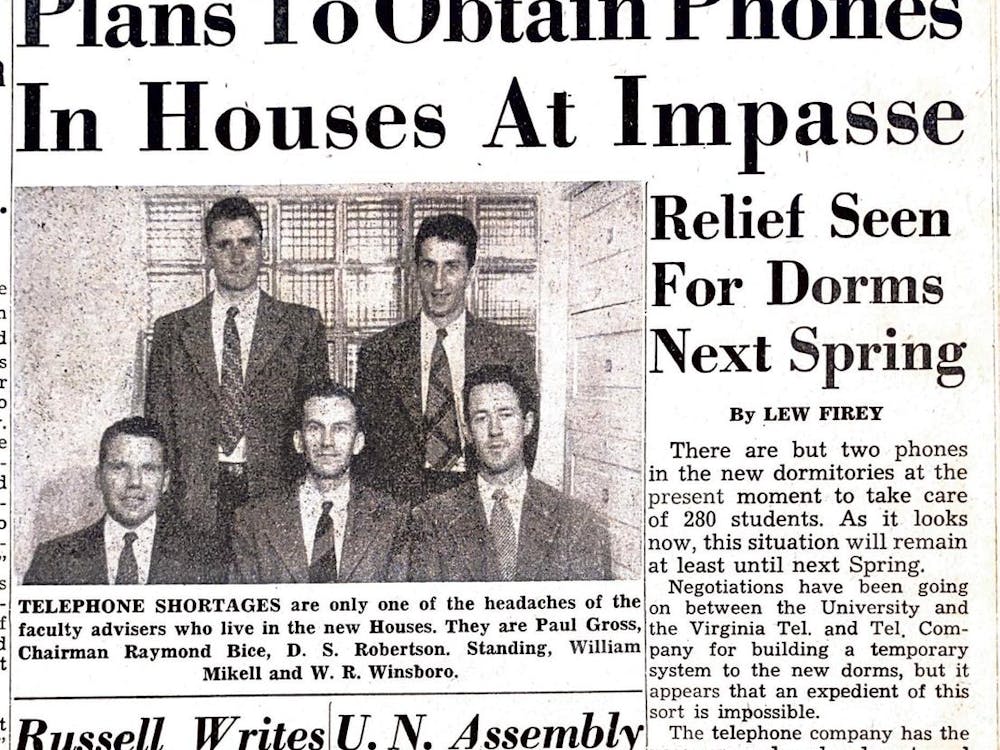In an interview with The Cavalier Daily earlier this week, University President Jim Ryan said U.Va. must determine the legality of requiring that its dining provider, Aramark, pay its contracted workers a higher wage. When asked about his support for a higher contracted wage, ignoring the legal issue, Ryan did not take a stance, saying he needed to do more research.
According to the Massachusetts Institute of Technology’s living wage calculator — which estimates the living wage needed to support individuals and families based on the cost of basic necessities — a living wage in the City of Charlottesville is $12.02 per hour for a single adult or $16.95 per hour for a family of four in which both parents work. Aramark currently pays a base wage of $10.65 an hour.
“One of the complicating features of this is that there is an attorney general opinion that essentially prohibits the University from taking into account wages paid to contracted workers when selecting contractors which places some limits, and I don't know yet whether they are insuperable about what we can do with regards to contractors,” Ryan said.
Corey Runkel, a third-year College student and member of the Living Wage Campaign, said he thinks the legal challenges to requiring Aramark pay its employees a living wage are not insurmountable.
“"We're also a little unsure if [the legal challenges] are, in Ryan's words, 'superable,’ Runkel said. “We believe they are, and we also believe that if the University were to do something that was against the Attorney General's opinion — which should be taken under ‘due consideration’ — then they wouldn't face ramifications for it."
In 2002, Jerry Kilgore — at the time, the state’s Republican attorney general — wrote a non-binding legal opinion that declared localities could not require their contractors pay contracted employees any set wage amount under the Virginia Public Procurement Act, writing that “a ‘living wage’ requirement is unrelated to the goods or services to be procured.”
Deputy Attorney General David Johnson, a deputy of Bob McDonnell — the state’s Republican attorney general in 2006 — wrote a letter to then-U.Va. Executive Vice President Leonard Sandridge, confirming McDonnell believed that the 2002 opinion was applicable to the University.
Six years later, a spokesperson for then-Republican Virginia Attorney General Ken Cuccinelli said in a published statement that Cuccinelli believed that Virginia codes restricted any state agencies from requiring contractors to pay a living wage.
When asked if he would support a higher wage for contracted employees, if all legal challenges were addressed, Ryan said he needed more information before taking a position.
“I would have to look into it, honestly,” Ryan said, noting that he’ll be briefed on the issue in the near future. “I want to make sure I understand all the ramifications. Like I said, I think this is an incredibly important issue, but it also affects a lot else at the University, and when we go into it, we need to go into it with eyes wide open about ‘Here are the costs, here are the ramifications, here’s how they could pay for it.’”
"These dollars do make a big difference for a lot of people, and that the difference would be much larger for the employees than it would be for the University,” Runkel said. “My personal sentiment, and to an extent the sentiment of the Campaign, is that we really should be seeing something more productive come out of higher tuition every year."
For non-contracted employees, Ryan added that it was less a legal issue than one of “finances and economics.”
Student Council’s representative body passed a resolution Tuesday supporting a living wage for contracted employees.
Two spokespeople for Virginia’s current attorney general, Democrat Mark Herring, did not return request for comment.





